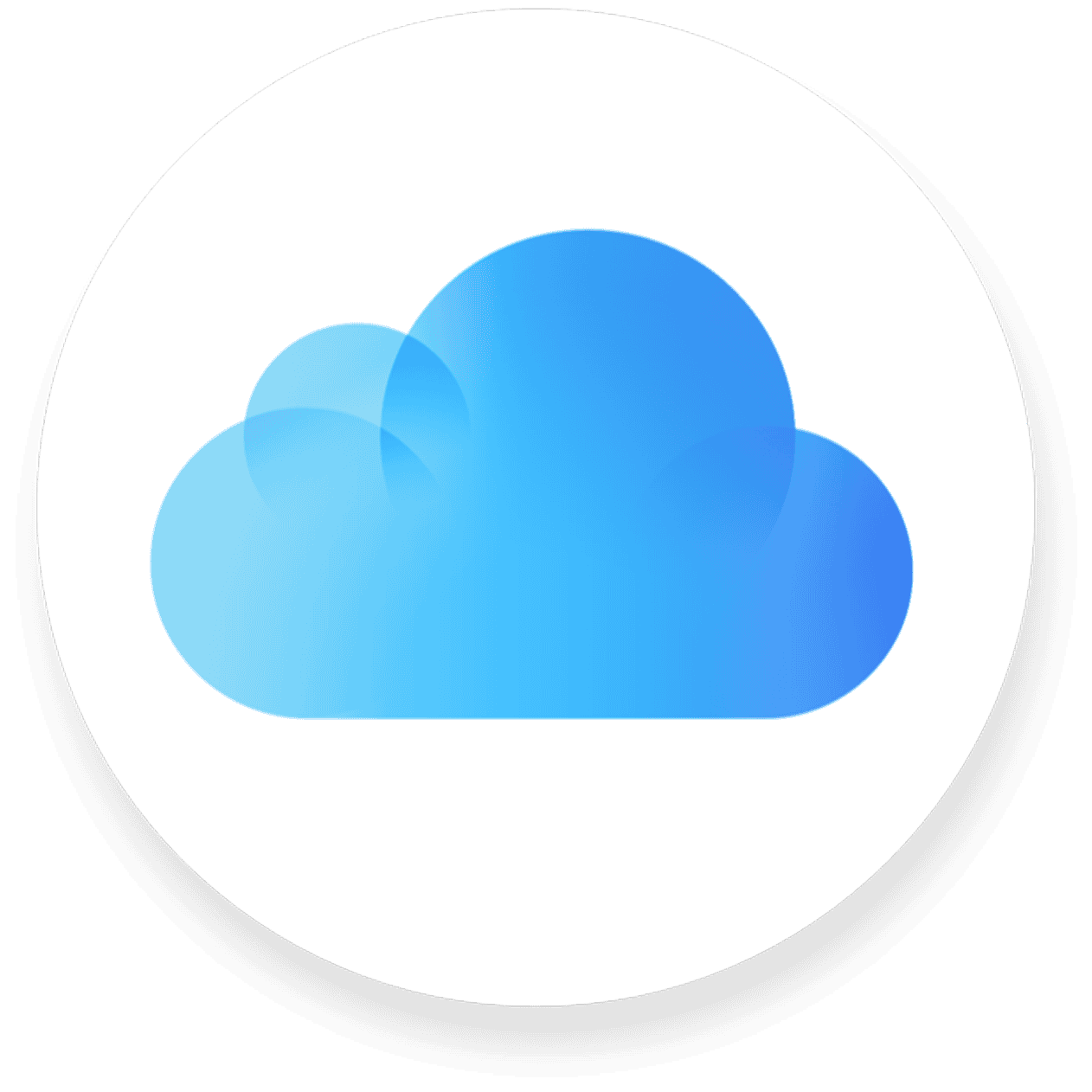In today’s hyper-competitive job market, having a degree or basic qualifications is no longer enough. To truly stand out, you need skills that are current, in-demand, and aligned with where the market is headed. Whether you’re looking for your first job, transitioning to a new industry, or aiming for a promotion, learning the right skills can fast-track your success.
The best resume-boosting skills of 2025 are a blend of technical know-how, strategic thinking, and soft skills that support modern workflows. Hiring managers aren’t just looking for what you know—they want to see how fast you can learn, how well you adapt, and how effectively you contribute to evolving business needs.
Top Skills That Make Your Resume Pop in 2025
1. Artificial Intelligence (AI) & Machine Learning (ML)

Why it matters: AI isn’t the future—it’s the present. Companies are integrating AI across departments to improve efficiency, cut costs, and personalize customer experiences. AI literacy is quickly becoming a foundational skill.
What to learn:
- Prompt engineering (for tools like ChatGPT, Gemini)
- Python for ML
- OpenAI API, Google Gemini API
- TensorFlow, PyTorch
- Data annotation and model tuning
Career paths: AI product management, automation engineering, data science, AI ops
2. Data Analysis & Visualization

Why it matters: Every business relies on insights to make decisions. Knowing how to gather, interpret, and present data is valuable across industries.
What to learn:
- Advanced Excel
- SQL for relational databases
- Python (pandas, matplotlib, seaborn)
- Tableau, Power BI
- Google Looker Studio
Hot tip: Companies value data storytellers—so learning how to explain data visually is just as important as crunching the numbers.
3. Cloud Computing

Why it matters: Most organizations have shifted to cloud infrastructure. Cloud engineers and architects are in high demand and command six-figure salaries.
What to learn:
- AWS (certifications: Cloud Practitioner, Solutions Architect)
- Microsoft Azure (Azure Fundamentals, AZ-104)
- Google Cloud Platform (GCP)
- Docker & Kubernetes
- Infrastructure as Code (Terraform)
4. Cybersecurity
Why it matters: As cyberattacks surge, security talent is critically short. Even basic cybersecurity awareness is a huge plus on a resume.
What to learn:
- Network protocols and firewalls
- CompTIA Security+ or CEH certifications
- Tools like Wireshark, Splunk, Nessus
- Identity and access management (IAM)
- Zero Trust security principles
5. Digital Marketing
Why it matters: In the age of content overload, those who can drive traffic, generate leads, and convert sales are indispensable.
What to learn:
- SEO and Google Search Console
- Google Analytics 4 and Looker Studio
- Meta & TikTok Ads platforms
- Email marketing (Klaviyo, HubSpot, Mailchimp)
- Content funnels and customer journey mapping
Bonus: Learn how to use generative AI tools for ad copy, blogs, and A/B testing.
6. Project & Product Management
Why it matters: Every company needs people who can deliver on goals, manage teams, and ship products.
What to learn:
- Agile/Scrum methodologies (get a ScrumMaster cert)
- Jira, Asana, Trello
- PMP or CAPM certifications
- OKR tracking
- Stakeholder communication
Tip: Tech companies especially value product thinking—understanding how to solve user pain points and iterate.
7. Communication & Writing
Why it matters: In remote and hybrid workplaces, writing skills have never been more critical.
What to learn:
- Business writing and executive summaries
- Presentation design (PowerPoint, Canva, Google Slides)
- Copywriting (especially for UX or marketing)
- Technical documentation
- Email etiquette and client comms
8. Software Development & Coding
Why it matters: Coding is becoming a universal skill—even non-engineers benefit from basic fluency.
What to learn:
- HTML, CSS, JavaScript
- React.js, Vue.js, or Svelte
- Git and GitHub
- RESTful APIs and JSON
- Python or TypeScript for scripting
Bonus track: No-code/low-code tools like Webflow, Zapier, and Airtable are great entry points.
9. Finance & Business Intelligence
Why it matters: Strategic finance helps drive growth, especially in startups and SMBs.
What to learn:
- Financial modeling in Excel/Google Sheets
- Budgeting and forecasting
- QuickBooks, Xero, or Zoho Books
- KPI dashboards
- Business strategy and unit economics
10. Foreign Languages
Why it matters: In a globalized market, multilingual employees are a competitive edge.
Top picks for 2025:
- Spanish: North and South America
- Mandarin: Trade, logistics, and tech manufacturing
- German: Engineering, EU business
- Arabic: Tech and energy sectors in MENA
- Japanese: Gaming, robotics, and consumer electronics
Skill-Building Strategy: Learn Smart, Not Just Hard
- Certifications > Courses – Validated proof of skill helps hiring managers.
- Projects > Practice – Showcase what you build, not just what you know.
- Contextual learning – Tie new skills to problems you actually want to solve.
How to Show Off These Skills on a Resume
- Use a “Core Skills” or “Areas of Expertise” section.
- Back each skill with tools, certifications, or accomplishments.
- Example:
Data Analysis: Advanced Excel | SQL | Tableau | Python (pandas, seaborn) - List projects or outcomes under job experience: “Reduced data reporting time by 30% by automating dashboards in Power BI.”
- Use action verbs like “built,” “launched,” “automated,” “optimized,” or “led.”
If you’re not sure where to start or want help building a custom upskilling plan, I can walk you through based on your industry, current skill level, or career goals.
10 More Great Skills To Master
1. Data Analysis
Data analysis has become one of the most valuable skills in today’s job market. Companies need people who can make sense of their information and turn it into useful insights.
Learning SQL stands as a top priority for anyone interested in data analysis. This query language helps professionals extract and manipulate data from databases efficiently.
Excel remains essential despite newer technologies. Many businesses still rely on spreadsheets for their day-to-day operations and basic analysis needs.
For those wanting to advance further, learning a statistical programming language like Python or R opens many doors. These tools handle complex calculations and can process large datasets that Excel cannot manage.
Data visualization represents another crucial skill. Tools like Tableau and Power BI allow analysts to create compelling visual representations of data that help others understand complex findings quickly.
Understanding statistics and probability concepts helps analysts draw meaningful conclusions from data. Without this foundation, one might misinterpret results or miss important patterns.
Data cleaning and wrangling skills are often overlooked but extremely important. Real-world data rarely comes in a perfect format, so analysts must know how to fix inconsistencies and prepare data for analysis.
Machine learning knowledge gives analysts an edge in the job market. While not required for all positions, basic understanding helps tackle prediction problems and automate certain analytical tasks.
Communication skills complement technical abilities. Analysts must explain their findings to non-technical colleagues in clear, actionable terms.
The demand for data analysts continues to grow across industries. Healthcare, finance, retail, and technology companies all seek professionals who can transform their data into valuable business insights.
2. Software Development
Software development remains one of the most valuable skill sets in today’s job market. Learning to code opens doors across nearly every industry as businesses continue to digitize their operations.
Programming skills are in constant demand, with several languages standing out as particularly useful. Python, JavaScript, and Rust have been identified as languages that will remain relevant for many years.
Beyond coding, developers need strong problem-solving abilities. The best programmers know how to think critically about complex issues and find creative solutions. These critical thinking skills often matter more than knowing specific programming languages.
Understanding data structures and algorithms forms the foundation of computer science knowledge. This knowledge helps developers create efficient, scalable applications regardless of the programming language used.
Version control through systems like Git has become essential. This skill allows developers to track changes, collaborate with teams, and maintain code quality over time.
Cloud computing expertise has grown increasingly important. Knowledge of platforms like AWS, Azure, or Google Cloud gives developers the ability to build applications that can scale globally.
User experience matters just as much as technical ability. Engineers should learn to understand the user’s point of view and design interfaces that make sense to non-technical people.
Testing represents another crucial skill. Writing tests helps catch bugs early and ensures software works correctly when changes are made.
Developers should also become familiar with integrated development environments (IDEs). These specialized tools boost productivity by offering features like code completion, debugging, and project management.
The field moves quickly, making adaptability perhaps the most valuable trait. Successful developers commit to continuous learning as new technologies emerge.
3. Generative AI
Generative AI has become one of the most valuable skills to learn as we approach 2025. This technology can create new content, from text and images to code and music, based on what it has learned from existing data.
Learning to work with tools like ChatGPT, DALL-E, and other AI systems gives professionals a significant advantage in the workplace. The ability to write effective prompts has become particularly valuable, with prompt engineering for chatbots emerging as a key skill.
Python programming knowledge pairs excellently with generative AI work. Many professionals use Python to interact with large language model APIs and build custom AI solutions for specific business needs.
Companies value employees who can use generative AI to automate repetitive tasks and enhance decision-making processes. These skills allow teams to focus on more creative and high-value work.
The financial rewards for generative AI expertise continue to grow. Many positions requiring these skills offer high income potential as businesses compete for talent in this emerging field.
Practical experience with AI tools proves especially valuable. Using generative AI for personal projects helps professionals test ideas and experiment, building deeper understanding beyond theoretical knowledge.
AWS highlights that employees with generative AI skills become more productive and can take on expanded responsibilities. Organizations increasingly seek candidates who can apply AI tools to solve business problems creatively.
Building web applications powered by AI represents another valuable skill combination. Creating interfaces that leverage AI capabilities helps businesses deliver personalized experiences at scale.
4. Digital Marketing
Digital Marketing skills are in high demand as businesses continue to expand their online presence. Learning these skills can open doors to many career opportunities and help businesses grow their reach.
Data analytics stands out as a game-changing skill for anyone starting in digital marketing. Being able to interpret data helps you make better decisions about marketing campaigns and understand what works for your audience.
Search Engine Optimization (SEO) ranks among the most essential digital marketing skills. It involves optimizing websites to rank higher in search results, bringing more organic traffic to a site.
Along with SEO, Search Engine Marketing (SEM) is equally valuable. This skill focuses on creating and managing paid advertising campaigns on search engines to drive targeted traffic.
Content creation is another vital skill. Marketers who can create engaging blog posts, videos, and social media content have an advantage. Good writing and editing abilities form the foundation of effective content.
Video marketing continues to grow in importance. Learning to create, edit, and promote video content can significantly boost engagement rates across platforms.
Email marketing remains a powerful tool despite newer technologies. Understanding how to craft compelling emails and analyze campaign performance leads to better customer relationships and conversions.
Social media paid advertising is now essential knowledge. Knowing how to target specific audiences and create effective ad campaigns across different platforms maximizes marketing budgets.
Brand development skills help marketers create consistent, memorable brand experiences. This includes visual design, messaging, and understanding customer perceptions.
The most successful digital marketers combine several of these skills. Even mastering just two or three can make someone valuable to employers or clients in today’s competitive market.
5. UX/UI Design
UX/UI design skills are becoming increasingly valuable in the job market. As digital products continue to shape our daily interactions, companies need designers who can create user-friendly experiences.
The core of UX design involves creating wireframes, user flows, and mockups that map out how users will interact with a product. Good designers test their ideas through prototyping before development begins.
Visual design skills are equally important. Designers need to understand color theory, typography, and layout principles to create interfaces that are both functional and visually appealing.
Research is a crucial part of the UX process. Designers must learn how to conduct user research and usability testing to ensure their designs actually meet user needs rather than just looking nice.
Background knowledge in cognitive psychology and human-computer interaction can give designers an edge. Understanding how people think and process information leads to more intuitive designs.
Technical skills matter too. Proficiency with design software like Figma, Adobe XD, or Sketch is essential for creating professional designs that developers can implement.
Information architecture is another key skill. This involves organizing content and features in a logical way that helps users navigate complex systems without confusion.
Communication skills shouldn’t be overlooked. Designers must explain their decisions to stakeholders and work closely with development teams to bring designs to life.
Many UX designers also need UX writing skills to craft clear interface text, error messages, and other content that guides users through the experience.
The field requires both creative and analytical thinking. Designers solve problems by creating interfaces that balance business goals with user needs, making this a challenging but rewarding career path.
6. Project Management
Project management involves organizing and guiding teams to complete goals within specific timeframes and budgets. This skill has become essential across many industries beyond traditional construction or IT fields.
Learning project management skills helps you coordinate resources, manage timelines, and lead teams effectively. These abilities make you valuable in almost any workplace.
Good project managers excel at communication. They clearly explain goals, listen to team members, and keep stakeholders updated. Strong listening skills often rank as the most important quality for successful managers.
Time management and organization are crucial project management components. Professionals must track multiple tasks, set realistic deadlines, and keep work flowing smoothly to prevent bottlenecks.
Problem-solving abilities help project managers adapt when things don’t go as planned. They must quickly identify issues, develop solutions, and keep projects on track despite challenges.
Risk management involves identifying potential problems before they happen. Effective project managers anticipate what might go wrong and develop backup plans to prevent delays.
Leadership skills enable project managers to motivate their teams, resolve conflicts, and create positive work environments. They must guide without micromanaging.
Budget management requires tracking expenses and making adjustments when needed. This financial awareness helps deliver projects without costly overruns.
Negotiation skills prove valuable when working with vendors, resolving team disagreements, or securing resources. Project managers frequently need to find compromises that work for everyone involved.
Decision-making abilities help managers assess situations quickly and choose reasonable paths forward. They gather facts, weigh options, and commit to solutions without excessive delay.
Many employers offer project management training, but formal certification through programs like PMP (Project Management Professional) can significantly boost career prospects and earning potential.
7. Financial Literacy
Money skills are something everyone needs, but many people don’t learn them in school. Financial literacy includes several key abilities that help people manage their money effectively throughout life.
Budgeting stands out as a fundamental skill. This means tracking income and expenses to ensure you spend less than you earn. A good budget acts as a roadmap for your money and helps prevent financial stress.
Understanding credit scores matters too. These three-digit numbers affect your ability to get loans, apartments, and sometimes even jobs. Learning how credit works can save thousands in interest over your lifetime.
Debt management is another crucial area. Knowing the difference between good debt (like education loans) and bad debt (like high-interest credit cards) helps people make smarter borrowing choices.
Saving money consistently creates financial security. Experts suggest having at least three months of expenses saved for emergencies. Starting this habit early makes a huge difference over time.
Investing knowledge allows money to grow beyond what savings accounts offer. Even basic investment concepts can help people prepare for long-term goals like retirement or buying a home.
Tax basics help people keep more of what they earn. Understanding deductions and credits means fewer surprises during tax season and potentially more money in your pocket.
Insurance literacy protects against financial disasters. Knowing what coverage you need prevents both overpaying and being underprotected.
Many young adults want to learn specific money skills like building wealth, saving effectively, and avoiding debt. These practical abilities create financial confidence.
The good news? It’s never too late to learn these skills. Small improvements in financial knowledge can lead to significantly better money situations over time.
8. Meditation Techniques
Learning to meditate is a valuable skill that can help reduce stress and improve mental clarity. Beginners can start with simple techniques like mindful breathing, body scans, and loving-kindness meditation.
Mindful breathing is perhaps the easiest technique to learn. Simply focus on your breath as it moves in and out of your body. When your mind wanders, gently bring your attention back to your breathing without judgment.
Body scan meditation helps you become aware of physical sensations. Start at your toes and slowly move your attention upward through your entire body, noticing any tension or discomfort along the way.
Loving-kindness meditation involves directing positive thoughts toward yourself and others. Begin by focusing on feelings of love and goodwill for yourself, then extend these feelings to friends, neutral acquaintances, and even difficult people in your life.
Before starting any meditation practice, it helps to prepare properly. Pre-meditation skills can make your practice more effective. Learning to differentiate between your mind and your awareness is key – your mind tends to be fixed, while awareness can shift and change.
For newcomers to meditation, focusing on a constant sound can be helpful. Close your eyes and extend your awareness to the sounds around you. This simple practice trains your mind to maintain focus.
Breathing exercises, also known as pranayama, serve as excellent preparation for meditation. These controlled breathing techniques help calm the nervous system and prepare the mind for deeper states of meditation.
Consistency matters more than duration when starting out. Five minutes of daily meditation will yield better results than an hour-long session once a week. Most experts recommend practicing at the same time each day to build a lasting habit.
9. Time Management
Time management is a skill that can change your life. It helps you do more with the time you have. When you manage your time well, you can reach your goals faster and with less stress.
Good time management starts with organization. You need to know what tasks you have and when they’re due. Keep track of your responsibilities with a planner or digital tool.
Learning to prioritize tasks is another key part of time management. Not all tasks are equally important. Focus on what matters most first.
Setting clear goals helps you stay on track. Make your goals specific and measurable. This makes it easier to know when you’ve accomplished them.
Breaking down large projects into smaller tasks makes them less overwhelming. It’s easier to manage ten small tasks than one huge project.
Effective planning prevents last-minute rushes. Map out your day, week, or month in advance. This gives you a clear roadmap to follow.
Some people find that setting artificial deadlines helps them stay motivated. Try finishing tasks before they’re actually due to reduce stress.
Learning to say no is part of time management too. You can’t do everything, and trying to will only spread you thin.
The ability to delegate tasks can save you precious time. You don’t have to do everything yourself.
Time blocking is a technique where you schedule specific time periods for focused work. This helps prevent distractions and improves concentration.
Managing stress is connected to managing time. When you plan well, you reduce anxiety about deadlines and obligations.
Time management isn’t about cramming more work into your day. It’s about working smarter, not harder. The goal is to create balance while still achieving what matters.
10. Public Speaking
Public speaking is a skill that can open many doors in your career and personal life. It helps you share ideas clearly and build confidence in front of groups.
Many people feel nervous about speaking in public. This is completely normal, even for experienced speakers. Understanding that nervousness is normal can help you manage these feelings.
Knowing your audience is crucial for effective public speaking. When you understand who you’re talking to, you can tailor your message to meet their needs and expectations.
Organization matters greatly in public speaking. A well-structured talk with a clear beginning, middle, and end helps listeners follow your ideas easily. This structure also helps you stay on track during your presentation.
Practice is essential to improve speaking skills. You can practice in front of a mirror or record yourself to spot areas for improvement. Many experts recommend practicing a speech at least 10 times before delivering it.
Looking for opportunities to speak publicly helps build this skill. This might include volunteering for presentations at work, joining a speaking club, or participating in community events.
Body language plays a significant role in how your message is received. Standing tall, making eye contact, and using purposeful gestures can enhance your credibility and engagement with the audience.
Voice control techniques like varying your pace, volume, and tone make your speech more interesting. Speaking too quickly or too monotonously can cause listeners to lose interest.
Deliberate speaking habits develop over time. This means thinking about how you form words and sentences to give your voice clarity and power.
Public speaking skills transfer to many areas of life. They improve job interviews, help with networking, and boost confidence in everyday conversations. These benefits make public speaking one of the most valuable skills anyone can learn.
Understanding the Importance of Skill Acquisition
Skill acquisition forms the foundation for personal growth and career advancement in today’s workplace. It involves the brain developing neural pathways that support learning new abilities and refining existing ones.
How Skills Enhance Personal and Professional Growth
Learning new skills creates opportunities for both personal satisfaction and career advancement. When you master a new ability, your confidence grows and your problem-solving capabilities expand. Skill acquisition connects directly to brain development as you form new neural pathways with each practice session.
Professional growth often depends on building a diverse skill set. Companies value employees who can adapt and contribute in multiple ways. For example, learning basic coding or data analysis might open doors to new positions or greater responsibilities.
Skills also build independence. In therapeutic settings, ABA skill acquisition programs focus on helping individuals develop abilities that reduce dependence on others and decrease problematic behaviors.
Adapting to a Rapidly Changing Job Market
The job market evolves constantly, making continuous skill development essential for staying relevant. Technical abilities that were optional ten years ago now form basic requirements in many fields.
Digital literacy has become particularly crucial across industries. Being able to work with common software tools and understand basic technological concepts helps workers remain competitive regardless of their field.
Learning new languages (both human and programming) expands job prospects globally. This flexibility allows professionals to pivot when economic conditions change or new opportunities emerge.
Project management skills also transfer across different sectors. Understanding how to organize work, meet deadlines, and coordinate with team members makes employees valuable in virtually any workplace.
Emerging Trends in Skills Development
The landscape of skills development is rapidly evolving with technology integration and a renewed focus on balanced skill sets. Several key trends are shaping how people learn and what employers value most.
The Role of Technology in Skill Learning
Technology has transformed how we acquire new abilities. Immersive learning experiences are becoming mainstream, creating engaging ways to practice skills in virtual environments before applying them in real situations.
Remote training has seen significant growth, allowing learners to access education from anywhere. This shift makes quality training more accessible to people regardless of location or schedule constraints.
Personalized learning paths powered by AI are tailoring content to individual needs. These systems track progress and adjust difficulty based on performance, helping learners focus on areas where they need the most improvement.
Cloud services like AWS and Microsoft Azure have become essential platforms for skill development. Learning how to use these tools effectively opens doors to numerous career opportunities.
Balancing Soft Skills and Technical Expertise
While technical skills remain crucial, employers increasingly recognize the importance of soft skills. Leadership, communication, and emotional intelligence training has seen growing demand as organizations value well-rounded professionals.
A hybrid approach to skills development is emerging. Companies want employees who can both understand technical concepts and explain them clearly to non-technical colleagues.
Project management abilities complement specialized knowledge. Being able to organize work, meet deadlines, and collaborate effectively makes technical expertise more valuable in workplace settings.
Digital literacy has become a foundational requirement across nearly all industries. This includes not just basic computer skills but also understanding digital ethics, security awareness, and effective online communication.
Frequently Asked Questions
People want to know which skills will benefit them most in different situations. These questions address skill development for various career paths, income opportunities, and personal growth.
What are the top skills to acquire for future job market relevancy?
Data analysis stands out as a crucial skill for future job markets. Companies increasingly need professionals who can interpret large datasets and draw meaningful conclusions.
Software development continues to be in high demand. Learning programming languages like Python or JavaScript opens doors across many industries.
Generative AI knowledge is becoming essential. Understanding how to work with AI tools and systems will give job seekers a significant edge in coming years.
Which skills are the most profitable to master for a home-based business?
Digital marketing expertise allows entrepreneurs to reach customers worldwide. Skills in SEO, content creation, and social media management can turn a small home business into a profitable venture.
Web development and design services remain in high demand. Creating websites for clients can be done entirely from home with minimal startup costs.
E-commerce management skills enable home-based entrepreneurs to sell products globally. Understanding platforms like Shopify or Amazon can lead to substantial income.
What are some valuable skills to learn that could lead to high-income opportunities?
UX/UI design can lead to six-figure salaries. Companies value professionals who can create intuitive, user-friendly digital experiences.
Cybersecurity expertise commands premium compensation. As digital threats increase, organizations pay top dollar for professionals who can protect their systems.
Financial analysis and investment management skills can generate significant income. These skills apply in corporate settings and personal wealth management.
For students, which skills are considered the most beneficial for career development?
Critical thinking tops the list for students. The ability to analyze problems from multiple angles serves students well in any career path.
Communication skills, both written and verbal, are fundamental. Students who can articulate ideas clearly have advantages in job interviews and workplace advancement.
Technical literacy across various platforms helps students adapt quickly. Understanding how to learn new software and systems is more valuable than mastering specific programs.
What are some useful skills to learn in one’s spare time that could be beneficial?
Meditation and mindfulness can be learned fairly quickly. These practices improve focus, reduce stress, and enhance decision-making abilities.
A foreign language opens both personal and professional doors. Even basic proficiency can make travel more enjoyable and create new job opportunities.
Cooking skills save money and improve health. Learning to prepare nutritious, tasty meals is a lifetime investment in wellbeing.
What essential abilities should individuals focus on to enhance their professional prospects?
Leadership and team management skills elevate professionals in any field. The ability to motivate others and coordinate group efforts leads to promotions.
Time management is essential for career advancement. Professionals who consistently deliver quality work on schedule stand out.
Adaptability keeps careers resilient during change. The capacity to learn new skills quickly becomes more valuable as industries evolve faster.







